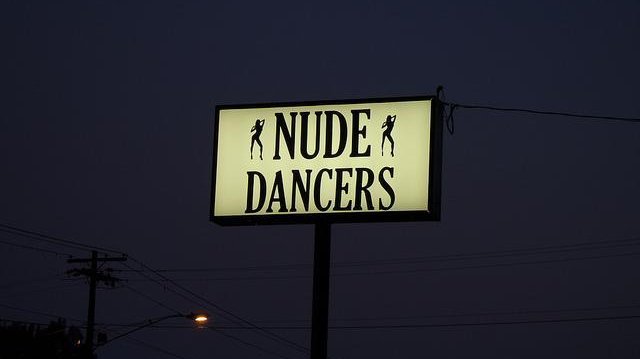ALBANY, N.Y., Sept. 6 (UPI) -- New York's top court must decide if strip clubs should be exempted from paying sales tax on cover charges and lap-dance fees under a performing arts exclusion.
"People may not like this on moral grounds, but on artistic grounds and on First Amendment grounds, there is no question -- if you start drawing lines, you have no clear line to stop at," Stephen Dick, chief financial officer of the Nite Moves adult-entertainment club 4 miles from the Albany, N.Y., airport, told Gannett after oral arguments.
"If it's exotic dance today, it can be rap music next year or dubstep music. It can be slasher films five years from now," he said.
Attorneys for the state Department of Taxation and Finance argued the club's $11 cover charge and $20 "couch sale" fees for 3-minute private dances should be subject to an 8 percent sales tax because the women's dances are not bona fide art, which at minimum should be "choreographed."
The state says the club owes about $400,000 in unpaid sales taxes since 2005.
Club attorney Andrew McCullough -- who described himself to The Wall Street Journal as a 64-year-old "teetotaling Mormon" who lives in Utah and is one of the nation's premier attorneys for adult-themed businesses -- argued the state is behaving too much like a dance critic.
He presented testimony from University of Maryland anthropologist Judith Hanna, who has been an expert witness in nearly 100 exotic dance cases.
She studied the Nite Moves dancers and testified earlier before a lower court that the dancers "unequivocally" met state standards. She said their moves represented complex "choreographic patterns of exotic dance," court records cited by the Journal indicate.
One dancer executed 61 distinct moves during three songs, Hanna testified.
An administrative law judge first agreed with the club owners, but the three-commissioner state Tax Appeals Tribunal ruled in favor of the state and a lower appeals court upheld the tribunal's ruling.
"The tribunal reasonably concluded that just sitting and moving in a patron's lap is not choreographed movement," Assistant Solicitor General Robert Goldfarb was quoted by Gannett as arguing Wednesday.
But the judges wondered if the state Legislature's use of "choreographic" in the statute meant the dances must be limited to predesigned and rehearsed movement sequences.
Judge Robert Smith said he interpreted "choreographic" as simply a synonym for dance. Chief Judge Jonathan Lippman said "creative artists in particular" often improvise.
Goldfarb additionally argued that state law requires "a cabaret or similar place" to pay sales tax if it makes a significant amount of money from refreshment sales.
He said Nite Moves' drink sales amounted to more than the admission fees, with a two-drink minimum at $5 apiece for non-alcoholic drinks.
The establishment, 10 miles from the courthouse, serves non-alcoholic drinks, allowing dancers to perform nude.
Smith suggested the refreshments weren't what attracted customers.
"If it's the refreshments that are bringing people in, then it's taxable," he said to Goldfarb. "You're not claiming that anyone came to this bar for juice?"
"Absolutely not," Goldfarb responded. "But I would submit that if the women kept their clothes on, no one would be coming to this bar for the dance performances."















